Content Sections
Guest article by Nathalie Bethesda MA Education, British Ecological Educator, Sustainable Schools Founder and Campaigner, and PhD candidate (Sheffield University, UK)
It is time for an education reset"- Nathalie Bethesda
"A great secret is revealed here. The senses are the very foundation for the virtues of the soul. We learn at a bodily level, through the senses, capacities for truth, beauty and goodness. We also discover the source of having a conscience, of sensing our destiny, and the capacity to live in community"
- Albert Soesman, 2014
As soon as I was introduced to the idea that we have not just five senses but twelve, so much made so much more – well, sense. As physical entities, we know those senses whose organs congregate largely around our head; sight, taste, smell, hearing, and touch, the sense whose organ is associated with our skin, our whole body interface with the environment. We understand these senses as receptors of the world around us and we are becoming increasingly aware of the effects of sensory overload or deprivation which take a psycho-social and emotional turn, as well as physical. But we often fail to consider the implications of these senses on our moral compass and our social conscience.
A Guardian article from 2021 popularised a sixth sense: Interception. It's our sense of the internal state of our human bodies. As the article states: "...the hidden sense that shapes well-being” which is summarised as “all the signals from your internal organs, including your cardiovascular system, your lungs, your gut, your bladder and your kidneys”.
In this article I suggest that interoception bears resemblance to, comparison with, and synthesis of, the findings of Rudolf Steiner’s too little-known research. His life sense, self-movement and ego senses in particular. Perhaps, looking at the table below and seeing that balance, temperature and language are also to be understood as senses, it might not excite too much controversy. The final sense to make up our divine dozen is thought - vital, in conjunction with all the others, in what public intellectuals and educators are calling Sense-Making (here, here and here).
In my work, I am asking what it might mean for education and its role in all our need for life-long sense-making in rapidly changing environments. I am asking therefore, how education can be generative in physical, emotional and psycho-social health – individual and communal – should it account for the 12 senses in pedagogy and curricula? In how we teach and what we teach? In what follows, I aim to illuminate touch, life, self-movement, balance, smell and taste, as foundational senses of human becoming. Vision, temperature, hearing, language, thought, ego senses, I pose as supplemental in that they bear the weight of the completion to human being.
It is not to say that they are not present at birth. But that their cultivation is interdependent on the foundational, which are carelessly overleaped in hurried lives in what I call a rush and remedy culture. I argue that the healthy development of the Divine Dozen is fundamental to personal coherence, of psychological unity and wholeness, as embodied in each individual. This is prerequisite to social cohesion, and implies that the ways in which each of us is able to manage our hand, heart, head and connectivity is the glue that binds the cooperative impulses needed for a functioning society.
Table. The Divine Dozen: Our 12 senses
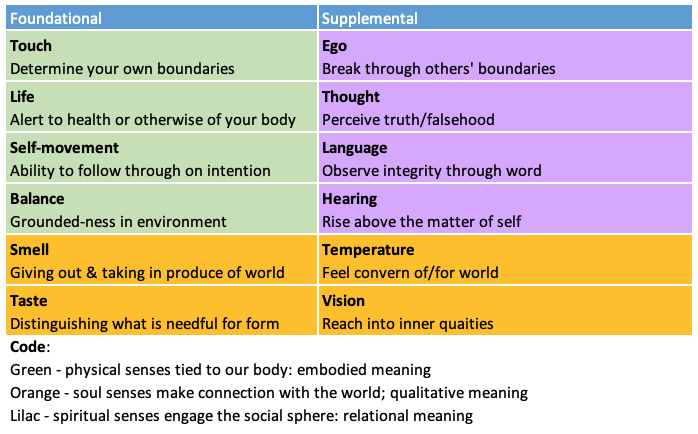
Adapted from: Albert Soesman's 'Our Twelve Senses, How healthy senses refresh the Soul' (2014) and Gilbert Child's 5 + 7 = 12 Senses: Rudolf Steiner's Contribution to the Psychology of Perception by Nathalie Bethesda, Ecological Education and Sustainable Schooling
The table above is my interpretation of the explanations that are given by a Dutch medical doctor and Anthroposophical practitioner, Albert Soesman, whose book is referenced, and British psychologist and Steiner/Waldorf teacher, Gilbert Childs. Both were dealing with what they observed as accelerating physical and mental health deterioration of patients in their respective fields in modern life. And they were both concerned with the effects of the same on the development of children. The article on Interoception tells us that “Importantly, these findings include promising new ways for you to “tune into” your body”; something that has become necessary because, in the head-focused learning environments of our schools, we have largely left the body behind. To our great cost.
Self-sense <> World-sense

Figure 1: Touch; Life; Self-movement; Balance; Taste; Vision
Sense-making advocates are proliferating across the web with, what seems to me, is a common purpose to re-connect people’s thinking and feeling. Our thinking, our thought sense is compromised in what is called the attention economy and addiction to technology. The emotive nature of much discourse takes the form of burning anger or cold criticism. It employs our temperature sense in tribal concern for the world. We are captured by a propagandist infotainment sphere in mainstream and social media. Sense-makers remark the insufficiency of a head-learning education ecology based on a cultural mind-set of reductive human capital in which we are both product and market. Our selves are being mined so we can buy ourselves back.
Theirs is vital work in our contentious culture, reinstating meaning as embodied, and qualitative and relational and therefore, implicitly, as a function of the 12 senses. Though he may not count himself as such, one of the most significant sense-makers in my orbit is Iain McGilchrist. A British Oxford educated philosopher, a psychiatrist with neurobiological training and a psycho-social practice, his urgent message on the delusional and dysfunctional relationship the culture has with our brains offers insights. An erstwhile professor of Literature, he talks beautifully about what it is to appreciate poetry (transcribed from 47.00mins):
“…it doesn’t just act on your cerebrum as some abstract proposition, it actually engages you at every level, emotionally, socially, intellectually, spiritually, and it has effects on you physiologically. As you read it, it affects your heart rate, your blood pressure, actually it also causes, though people are not aware of it, relaxations and contractions, in skeletal muscle movement as a response to the metre, the movement of the poem, it can make your hair stand on end, it can bring tears to your eyes, so it’s a very physical thing."
The culture short-circuits sense-making, igniting emotion and engaging in behavioural psychologies such as Nudge (this is the use of behavioural psychology which has been employed throughout the pandemic), an anti-education, manipulative technology of the mind, to my mind (Richard Thaler talking with Freddie Sayers of UnHerd). We are subject to information bombardment of issues that threaten existence. Climate change, pandemic, for instance, but also planetary-scale computational architecture, systemic injustice, which sense-makers are calling hyperobjects: “objects of advanced science that we live with as part of everyday life and yet which are nearly incomprehensible.” This is the terrain of sense-makers. Sense-making is an imperative of global survival, which I am saying is dependent on attainment of individuals to personal coherence, difficult to achieve when we understand ourselves as the raw material of economic systems, which regard earth as the same. Difficult, when we are given to believe that we are no more than an assemblage of genes, which can, like our foodstuff be modified, engineered – body and mind. Into this world-view we continue to bear and educate children.
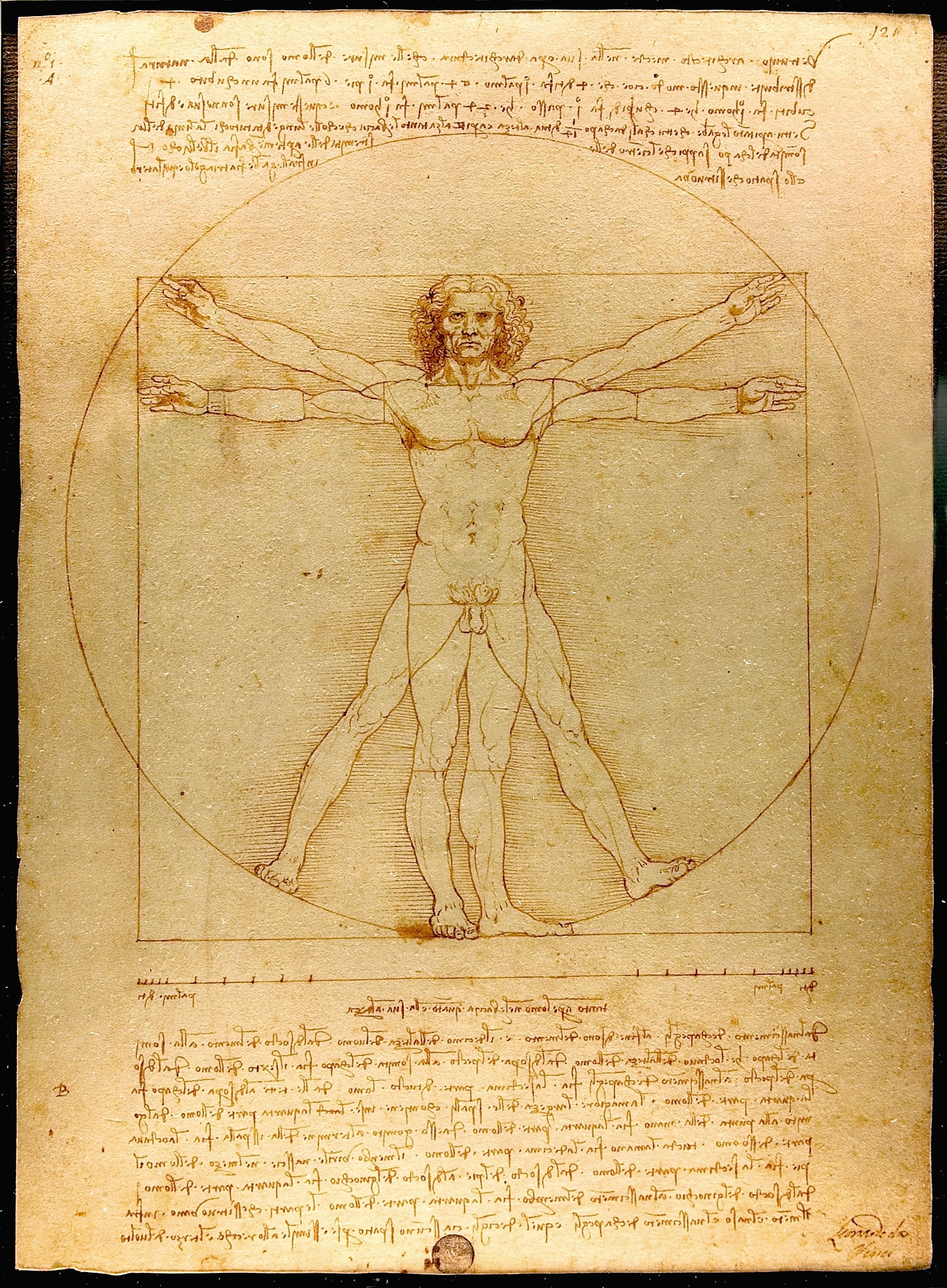
It is my contention that schools can shape the culture not ape it. In order to do so they must therefore become sense-making settings and must reinvest a spiritual vocation which I believe must take a secular, globalist form. Compatible with the religions practiced in homes, schools must see themselves as places in which children are enabled to;
Become and Belong: live toward gratitude and trust, purpose and truth in the REAL
To be enabled to both Become and Belong are bound up with personal coherence as evoked above. To Become involves nurturance and accommodation of the Divine Dozen. It is not for nothing that I use the term Divine. It is a word that has within it ideas about our inner and outer reach, each individual’s earthly and transcendent potential. It talks to deep theology, subliminally carried by the culture. It suggests beauty and goodness. To divine is also to foresee and so resonates as inspiration.
To Belong is to honour the journey humankind is making, leaving behind the word’s possessive imprint, where women and children were (and in some places still are) chattels of men, to the diminution of both sexes’. Though I mean it first and foremost as a belonging to self, it is not confined to ideas about self- actualisation which has arguably taken a narcissistic turn, is prey to identity crises, and frustrates social cohesion. To Belong resonates with so much current work, bound as it is with connections to the earth on which we depend in ecology; and to the particular place whence we emerge, to the communities that we inhabit, our ancestral inheritance, and our family bonds. The timeless terrain of indigenous thinkers. In such ways do trust and gratitude come into being.
It is in all of our interests to attend to all of our 12 senses, to find truth and purpose within so that we can act on the world with integrity. The capacity to do so starts in the home, with parents.
…touch and ego…
A commodified rush and remedy culture has seduced us into to believing that if we have the right equipment, we can have it all. Today’s version of ‘science’ seems to be largely at the service of it.
Thought up by a tired new mother, and now backed by Bill Gates, manufactured human milk sounds like the stuff of science fiction. But just how liberating will it be?
Well, how's this take on synthetic breast milk as scribed in an article by Jenny Kleeman, published in The Guardian, 14 November 2020? The headline reads: "‘I want to give my child the best’: the race to grow human breast milk in a lab"
It is not to stigmatise those who choose not to or cannot breast feed as an initial example of the importance of touch, but to reiterate how we have lost touch with our bodies’ natural functions and capacities, having them sold back to us as superior technological aids. That the sense of touch is foundational to that of ego (see Table above) and suggests that when babies encounter their own and their mothers' boundaries they respond in ways that our best for their survival and betterment. This is as important as absorbing the antibodies contained in the breast milk. Research has turned to encouragement of breastfeeding for short- and long-term health with benefits focusing on disease risk reduction, as well as the physical, and physiological benefits. As crucial a consideration is how healthy relationships are equally engendered, and fundamental to well-being. The sense of touch is how a baby establishes itself as separate from its mother too. “With touch you do not end up in another world, the outer world; you stay in your own world.” says Soesman in his "Twelves Senses..." book (p.14). Boundaries are deeply compromised in current and proliferating identity crises. It is important to consider carefully how the ways in which we hold our babies, carry them, clothe them, irrespective of fashion trends or marketed products. Many baby products are designed to accommodate modern lifestyles and profit margins, not necessarily the holistic development of the child.
Gilbert Childs lists the ways in which modernity can dangerously depress human senses from birth;
“…by cold treatment in ways both physical and psychological (sense of warmth*); by garish colours and ugly toys, books and television (sense of sight*); by plastic and synthetic materials (sense of touch); by lifeless food, unnecessary drugs (sense of life); by constraints involving various activities as toddlers (sense of movement*); by unrealistic expectations from adults with regard to physical maturity…(sense of balance); by…pollution of air, water and soil, convenience foods and toiletries (sense of smell); by artificial flavouring…(sense of taste); an inability to think in ways that are not emotive…(sense of thought); by poorly articulated speech…(sense of word*), and excessive noise…(sense of hearing).”
Note: *Childs’ warmth is temperature; sight is vision; movement is self-movement; word is language
It could be that reading Childs' list has touched a nerve for parents who are doing their best. It did me, when I first looked at it and reflected on the paraphernalia that surrounded my sons’ lives, the ego sense was breached. There again, I remembered the claustrophobia of clutter, the arguments caused by the tip of toys, the futility of their purchase. It began to make a different kind of sense.
…life and thought…
The life sense is our awareness of our constitution. Its relationship to our ability to perceive truth and falsehood through our thought sense pays close attention. It is in recognising what our body signals mean and investing appropriate responses that are the rudiments of reality. In Childs’ evaluation of the situation, we gratuitously reach for pharmaceuticals, medicating often too hastily. Soesman too associates the depression of the life sense with the avoidance of pain, which he is at pains to tell us is the best teacher we have. “Imagine if you were never allowed to fall. Because of the pain of falling down we learn to walk well, we learn to climb the stairs safely, we learn to keep our distance from dangerous objects”. By experiencing pain in our stomach, we can be unhappily alerted to having eaten contaminated food. It is more likely though for the fact of our over-indulgence which we will then attempt to relieve our upset with indigestion tablets, dodging the opportunity to address the truth of gluttony, and engaging our thought sense. Or even to consider the possibility of allergy, or food combinations as inappropriate to our particular make-up.

…self-movement and language…

The 12 senses are wonderfully interwoven. The BBC2 documentary Who Are You Calling Fat? (2019) demonstrated the unwillingness or the inability of people who are at great risk, to take account of behaviour today as direction to long-term prospects. In a post on LinkedIn is a little film of a little being, reaching for a toy. The tagline on the post goes, “The hardest thing about letting your kids develop natural persistence is resisting the temptation to intervene”. The baby is crawling, incrementally, toward a toy and frustrated by its efforts. It falls onto its stomach and is hiccoughing. It begins smiling in joy, and grows increasingly whiny. It looks around continuously in seeming appeal to the adult who is present. The film is a mere 2.49 minutes. Its joyful conclusion has the baby triumphant.
Here is the sense of self-movement. How many of us would have pushed the toy toward the baby to ease its discomfort (and ours?) but depriving it thereby of its knowing that, following through on intention, while requiring perseverance, might often yield rewards. How many of us would have spurred the baby on with encouraging words, followed up the baby’s achievement with an affirmative whoop? What does it do to the child to come to depend on the language sense implied in arbitrary praise? Need a tick on the page? Crave an avalanche of on-line likes? There is some wisdom in the phrase ‘to walk the walk and talk the talk’ as figurative of our ability to observe integrity of ourselves and others, when actions and words cohere; to recognise integrity in others, and to practice using language with integrity. What false impressions do we give to our little ones when we place them in baby walkers that hold them in an upright position they couldn’t attain alone, and allow them to propel themselves, in directions that are unconnected to independent mobility?
Once formal learning gets underway in school, the situation is reversed. Children are largely deskbound, their natural urge to move about, explore, is inhibited during language learning. The reality of language as organic, as a sense, is undermined. False impressions though are compounded, where language sense has morphed to literacy – the ability to read and write – and children begin to be measured accordingly, through synthetic phonics in the UK. Perhaps the word synthetic has pause for thought here? Language that is after all, just a beautiful human sense that corrals and communicates thought, becomes an artefact to be judged. Literacy, a wonderful technology of human design meant to connect us through text, becomes one that classifies us instead. The testing regime, creates winners and losers, achievers and failures.
Furthermore, the natural developmental arc is not yet up to the job. Gross and fine motor skills are not yet integrated to be seated for prescribed periods of time, nor for the holding and operating of a pencil in order to complete abstract word formation. This does not happen until the age of 6/7 and again, Charlotte Davies is instructive. Hers, I repeat, is work I direct you to, for her clear articulation of the biological and psycho/social effects of the miseducation we are inflicting.
…the chronosystem…
I use the Ecological Education in my work because it examines all the interactions that occur in the education of humans, including the cultural ramifications. Another element I look at is the chronosystem. This is a word for lifespan. It not easy to contemplate lifespan in today's rush and remedy (ego-centric) culture. Nor in the political sphere of controlled by career politicians looking at quick gains from short-term policy. In the economy we go through boom and bust. In the media we get offered bitesize, often distorted reports and partial data. Schools follow suit. In the language of the culture we are accommodated to the idea of being ‘portfolio people’ or more perniciously, ‘the precariat’ to adapt to socially engineered insecurity. The idea that we might become a hairdresser, or a carpenter out of our self-identified capacities, and that these are gifts that belong to the community, no longer has currency. We have constructed a dangerously conflicted culture, out of synch with ourselves and each other.
…balance and hearing…

As we all know, crucial to learning to ride a bike is our sense of balance. To do so we had better have a certain grounded-ness in our environment, to have no illusions or pretentions, such as – riding a bike is a safe-free enterprise. It’s why stabilisers might represent a kind of kidology we’d be wise to think again about. But children have too, to learn to take that knowledge of risk and rise above the fear for the matter of self, the physical fear of injury. We do that by quietening the inner voice, never mind the cheerleading adult’s, in favour of the accomplishment to come. Here then, is the sense of hearing as a social, psycho/emotional partner in our feeling for balance. This requires an inner stillness, or spirituality, that is so hard to come by when the physical environment and the culture are contaminated by noise pollution. It is hard for embodied sense-making when distractions are unavoidable, and incessant noise assaults. It leads to disrupted sleep patterns, to fatigue, to frustration and anxiety. Our relational sense-making is deeply compromised when we become entangled in individual and communal difficulties, hearing only nay-saying, cancelling out the potential to personal coherence and social cohesion.
The classroom is induction to that cacophonous clamour. Of the voices of doubt. Are standardised tests complicit in the acceleration of learning pathology, of crises of personal identity and community division? Standardised tests of the developing child are often inappropriate on a number of counts. They are abstract and decontextualised. They take no account of a rounded view of the child’s achievements and needs. They introduce the child to measurement against their peers, and of themselves, according to indiscriminate norms. Children are hearing the world’s take on them. They lose balance, the ground from under their feet begins to shake.
I challenge you to watch the UK Department for Education Year 1 Phonics Screening Test Training Video. How does it make you feel? I am interested in the way some seem like the proverbial rabbit in the headlight, having been triggered by the ‘fight or flight’ response. Others are expressionless, the light taken out of them. Either one of these responses might follow them through their school life. I am interested again in how they are judged on trying to make things make sense when they are presented with unreal words. Take what happens 6:30 minutes in for example; the children are offered ‘doy’. A child does a beautiful job of sounding out the d-o-y but is arguably unable to accommodate it as a word of the world. They pronounce it ‘dog’ instead. “We can only maintain our balance with reference to the world”, Soesman says (p. 99). I draw attention too to the way in which a number of the children defer to a ghostly adult. And again to the narrator’s objective tone and use of abstract, grammatical terminology to coldly judge the children. For just not getting the rules of the game.
The focus in schools is directed at pathology of children, when it is the culture that is off-kilter, taking little account of individual bodies — or psycho-emotional realm — let alone the desire to strive for spiritual development.
…smell and temperature…
One of the common symptoms of covid-19 infection is the loss of the sense of smell and the sense of taste. Soesman tells us that the sense of smell is associated with our moral compass. We need only to look at recent history and the way in which smell shaped the cities that grew out of the industrial revolution to see how morality lives and dies in olfaction. As districts that lacked sanitation became over-populated with the poor, those who were richer did what those who can, still do. They moved to cleaner air. The advent of public health policy in the 19th century was not necessarily initiated by humanitarian impulse only, but by the indiscriminate spread of deadly disease. Cholera, for example.
Smell is foundational to the temperature sense.
“Cut food waste at home, by sniffing and tasting, urges new campaign”. This is a headline from The UK Observer newsletter on 23rd January, 2021. The subheading says, “National government-backed initiative will replace ‘use-by’ with ‘best-before’ and urge people to judge for themselves”. How on earth did we arrive at a place where basic instincts to smell or taste our food to check its safety, has been educated out of us? Where, like children, we need to be directed to return to our senses. Our sense of smell desensitised, we consume beyond our needs and the world’s means. We have insufficient concern for each other and for the world. The climate crisis is a reflection, is the temperature gauge of moral malaise. And whilst I am not of the persuasion who believes that the pandemic is some kind of biblical visitation, it seems to me to signify a failure of human capacity. A failure of imagination that does not visualise the inevitability of pandemic, on seeing the ways in which people are pressed against one another in public transport for example, the incubation tubes that these airless vessels, buses, trains and planes represent. A failure of inspiration that does not invest in, insist on, creative policy design of transport systems - or sustainable schooling - that serves the evolution of common purpose.
…taste and vision…
Taste, Soesman says taste imputes our cultural capital where we ascribe good and bad ‘taste’ to preferences in fashion, the arts, and fine wines, for example. The artificial flavouring that Childs tells us, corrupts our sense of taste, is mirrored by the artificiality of ‘taste’ in a consumer society predicated on novelty not need; having not being.
Taste, foundational to the sense of vision, the saying goes that we eat with our eyes. This is a reference to the hunger instinct that directs the sense of taste to what the life sense is telling is needed for healthy form. Therefore it is the way in which the sense of vision is a reaching into inner properties. That we have endemic obesity, food allergies, and tragic eating disorders, such as bulimia and anorexia, suggests taste is diminished as a sense that guides an individual to what is wholesome or not. What is needed? Rather than whether it satisfies a superficial evaluation of delicious. The four categories of taste have different uses. It will come as no surprise that sweet gives immediate gratification. Imagine sucking a lemon slice and you receive an abrupt sour awakening. Salt is a stimulant to thinking. Too much or too little salt and your needs must consider what action to take in order to correct. The bitterness of green vegetables such as kale or Brussels sprouts meanwhile are a challenge to the will, to eat or not to eat what is eminently good for you, and therefore signify emerging maturity of taste sense that participates in the individual’s agency and will-power in their own health and well-being - and growing up.
Our entire psychology, therefore, is connected with our nutrition.
In summary:
- Salt: basis for awakened consciousness
- Sour: refreshing, activating
- Sweet: general sense of well-being
- Bitter: resistance for the will (see Soesman's book, p. 76)
Still, our psychology is also being manipulated by what is in our line of vision. Advertising ubiquitous, it sells lifestyle, seduces sense-making. Our eyes, ‘the windows to the soul’ are reached into to mine our basest instincts. Confectionary remains in the eye-line of children, and at the fractious end of the shopping trip – at the tills. Where you will pay for it. Foods of sour or bitter tastes are often a struggle in family diets, tend to be avoided. But as is the case with pain, we thereby deprive ourselves of our best teachers. Reliance on processed foods in the rush and remedy culture has largely camouflaged the contents of our diets. The nutritional value.
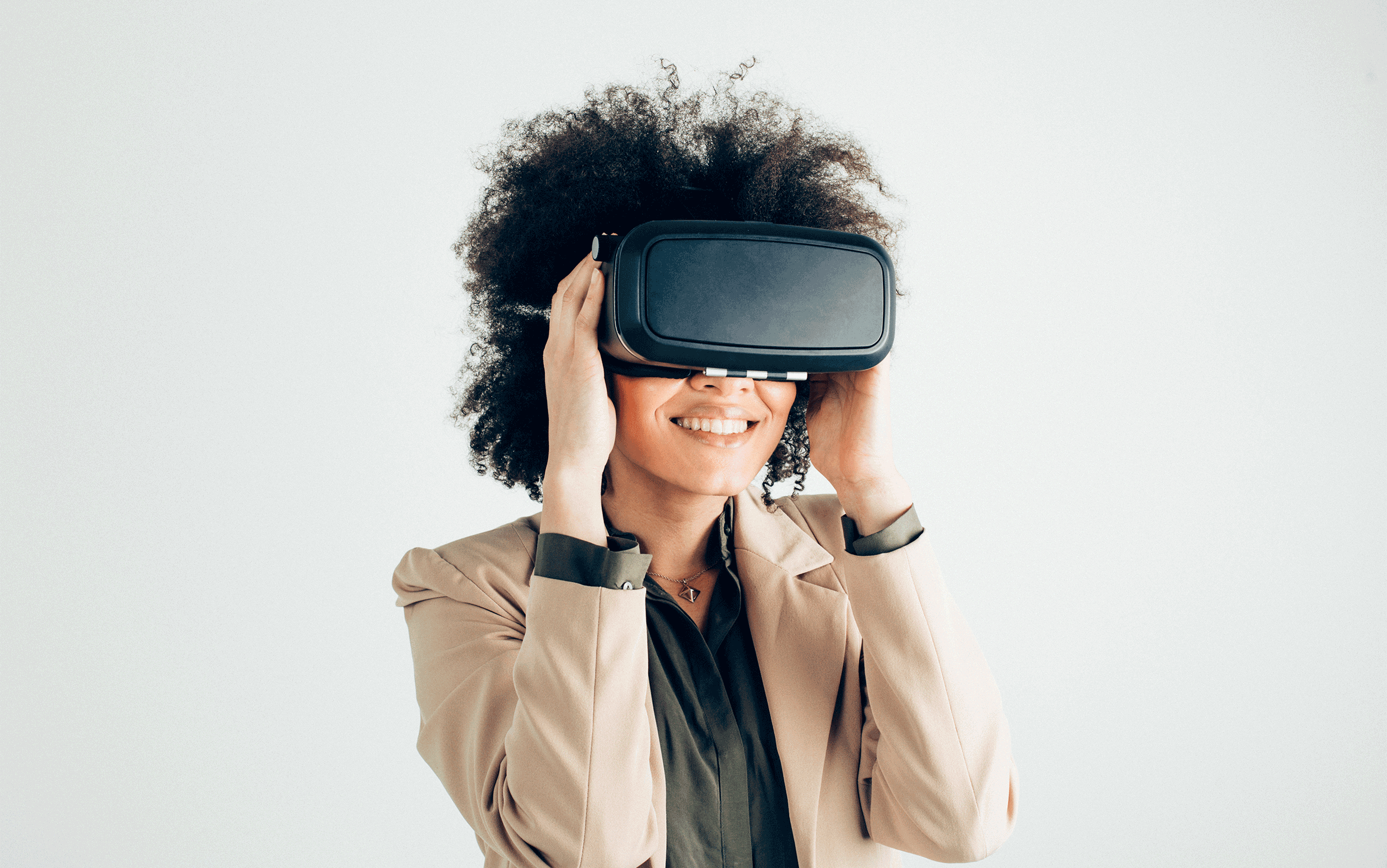
The picture of a woman smiling behind virtual reality glasses, accompanies an article that summarises research done at Cornell University in 2018. It sought evidence that environment has an impact on taste. It tested how differently a pungent blue cheese was received when the subjects were artificially placed in a standard sensory booth, a cow barn, and on a park bench. Asked to rate the pungency of the cheese in each environment, the pungency was found to be significantly more intense in the cow barn.
This research, makes no sense to me. It seems to me, more a dereliction of the duty of higher education to human evolution. It brings into question, the nutritional value of the ethical and instructional diet of our education ecology, which increasingly feeds corporate interests not cultural. How significant is it that the same person who is sponsoring manufactured human milk (link to breast milk article), is also a major driver in education reform, and is weighing in on food production and supply?
“Synthetic meat investor Bill Gates calls for rich countries to shift entirely to synthetic meat”, reports Beef Central. Nor is it lost on me that I am quoting a publication that has a vested interest in the real meat industry and is culpable for animal husbandry practices that are incompatible with ecological health. But so is it reported that Bill Gates is patenting seeds of the Earth in order to re-engineer them, and colonising swathes of land across the globe. Meat and plant industries, in this context, are two sides of the same coin. They are both producing what Vandana Shiva calls “nutritionally empty…diets become degraded through industrial processing with synthetic chemical and genetic engineering.”
If Shiva’s views of Gates seem conspiratorial, I invite you to read the full article referenced, and give particular attention to the patent application W0 060606, detailing Gates’ aspirations to mine our bodies and minds, as well as the implications for stated ambitions to ‘reinvent education’, starting in the US.
Extra Sensory Perception
The Guardian article (2021) on Interoception tells us that it “lies behind our sense of intuition, when something just feels “right” or “wrong” without us being able to explain why”. Their work is a welcome contribution to the self-therapeutics endorsed in rush and remedy culture. Extra-sensory perception meanwhile used to be called the sixth sense and is largely discredited in materialist scientific culture, as is intuition. Intuition is more than just a feeling - but is embodied. We live in counter-intuitive times.
That’s the problem. We need to come back to our 12 senses.
Book your place on Behaviour and Communication Magic
>>> Feel free to republish - just follow our Alliance for Natural Health International Re-publishing Guidelines
>>> Want more of this support? Want to expand your community and network with like-minded people? Yes? Great, why don't you join us as an ANH Pathfinder which gives you access to our private Pathfinder's network, a live monthly Q&A, our ANH Intention Circle and much more!
>>> Return to the homepage
Proudly affiliated with: Enough Movement Coalition partner of: World Council for Health





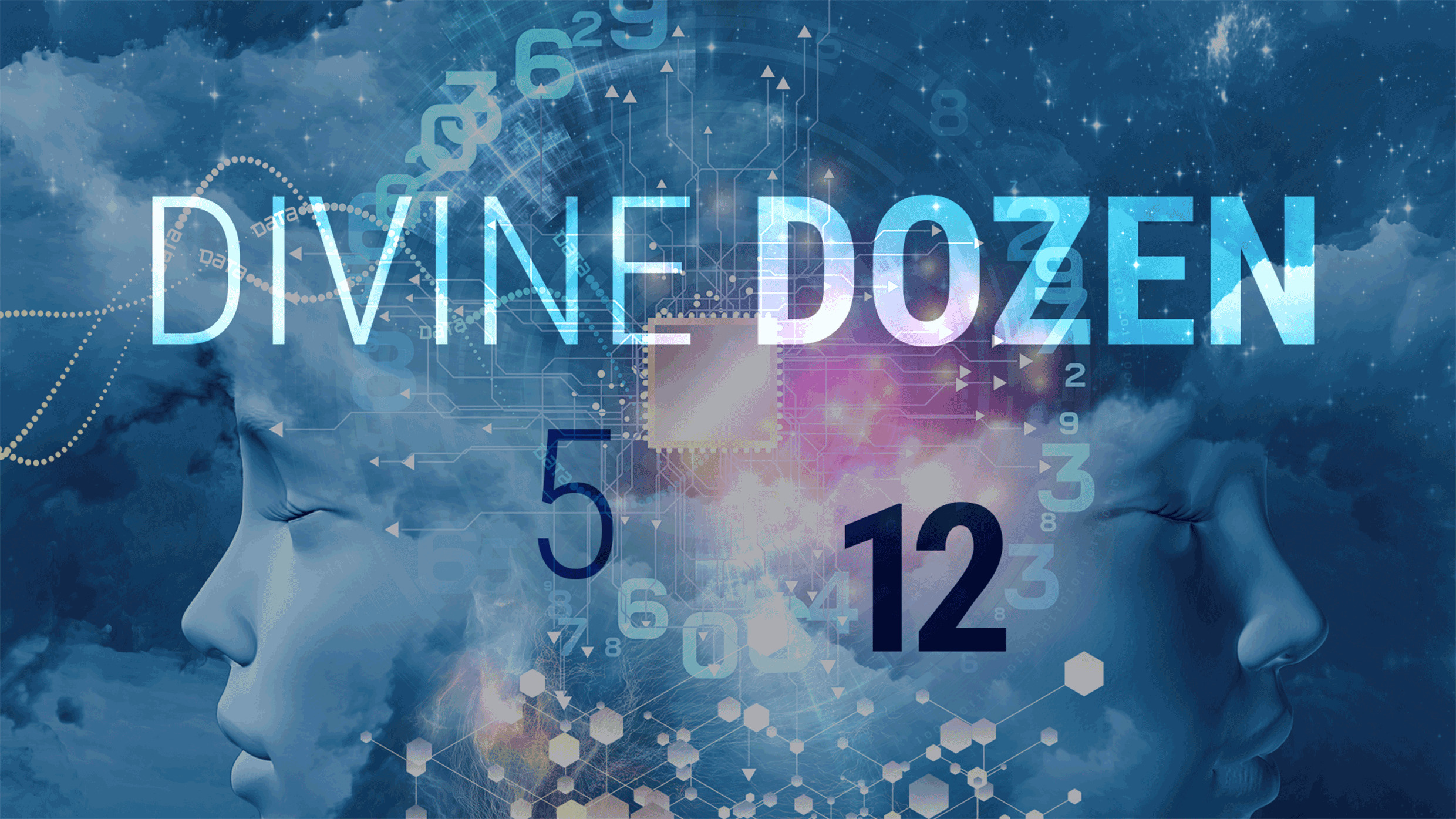
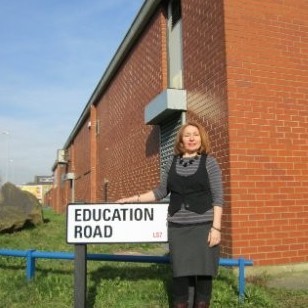




Comments
your voice counts
There are currently no comments on this post.
Your voice counts
We welcome your comments and are very interested in your point of view, but we ask that you keep them relevant to the article, that they be civil and without commercial links. All comments are moderated prior to being published. We reserve the right to edit or not publish comments that we consider abusive or offensive.
There is extra content here from a third party provider. You will be unable to see this content unless you agree to allow Content Cookies. Cookie Preferences